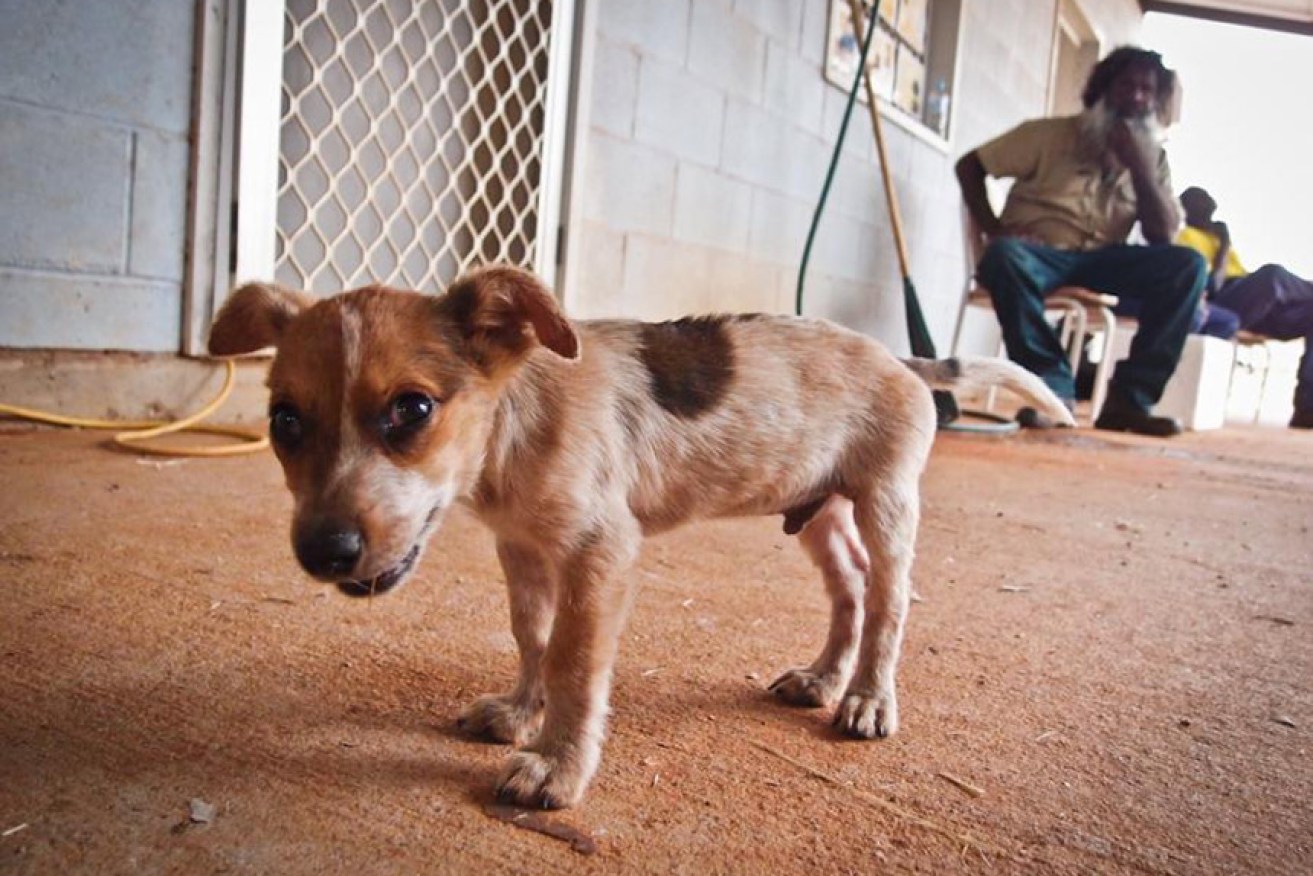How culling camp dogs helps Indigenous health

A push to reduce out of control dog populations has improved Indigenous health outcomes by preventing the spread of disease-causing parasites in remote communities.
Animal Management in Remote and Regional Indigenous Communities (AMRRIC) coordinator John Skuja said burgeoning canine populations were having a direct impact of the health of the human communities they inhabit.
He said parasites from dogs with scabies can lead to chronic itching and weeping sores in humans. In some cases, particularly when infected dogs share bedding with people, secondary infections cause heart and kidney damage.
“People need to get the link between environmental health and their health,” he said. “Being surrounded by sick and dying puppies is not conductive to human health. It’s not rocket science to see it’s a problem.”
AMRRIC is a Darwin-based non-profit outreach program that provides education and locum vet services in bush communities. In 2012-13, the group visited 113 communities and out-stations to treat and de-sex more than 3500 dogs. Last month the federal government promised $1.7m over three years to fund AMRRIC’s work across remote Australia.
Mr Skuja said many dog owners in remote communities allow them “to free-roam and form a localised pack”.
“Sometimes you can go to a house with half-a-dozen dogs in the backyard and the owner will only have one dog,” he said.
In the past, councils called in contractors or police to cull dogs.
“Now the police are reluctant to shoot dogs, it can change their standing in the community.”

Working in Ali Curing, central Australia. Photo: AMMRIC
A lack of veterinarians in remote areas has led to over-breeding, dog bites and an abundance of sick and dying animals. Dogs often roam in packs where they attack people and livestock. AMRRIC boss Julia Hardacker said the group sets up partnerships to work alongside indigenous groups.
“We don’t take a top-down approach,” she said. “[We have] traditional owners guiding us. We don’t just lob into a community.”
Batchelor College in Darwin is running an indigenous Animal Management Worker program with 12 students who are expected to graduate this month.
“The whole point is to employ local people who have connections with communities and find people who are interested in working with dogs. It’s a great start to building bridges,” Mr Skuja said.
Animal management workers supported by AMMRIC now work across East Arnhem. They are trained in animal aid, parasite control and euthanasia.
Barkly Council animal health worker Brian Radovic is a great supporter of the AMRRIC program.
 He said before it began, he used to shoot many of the dogs, which made him an unwelcome visitor to some Northern Territory communities.
He said before it began, he used to shoot many of the dogs, which made him an unwelcome visitor to some Northern Territory communities.
But since the de-sexing program began three years ago, “the locals invite me in for a cup of tea instead of throwing rocks at me”.
Mr Radcovic is supported by two indigenous workers, one of whom speaks seven local languages.
They set out every three months to check on dogs and drop off tick control, which they put in bread for the dogs to eat.
A Barkly Shire survey last month revealed that of its 15,000 dog population, most were in good health, with few animals testing positive to scabies.
In turn, the shire’s Utopia health clinic reported a 76 per cent decrease in human skin sores within the last year.
Each six-monthly vet visit to the shire costs around $10,000, with the cost shared between AMRRIC and the council.
Yuendemu’s “dog lady” Gloria Morales is another stanch supporter of the initiative.
In the past, Ms Morales regularly took hundreds of dogs on a 300km trip to Alice Springs to be euthanised by the RSPCA.
Since the AMRRIC program began in November 2011, the canine population in her town has dropped from 650 to 300.
“The dogs reflect the health of the people,” she said. “We don’t have any leatherbacks (dogs with scabies) in the community.”
Academics have also backed the AMRRIC initiative, which supplies field-data on zoonotic diseases.








